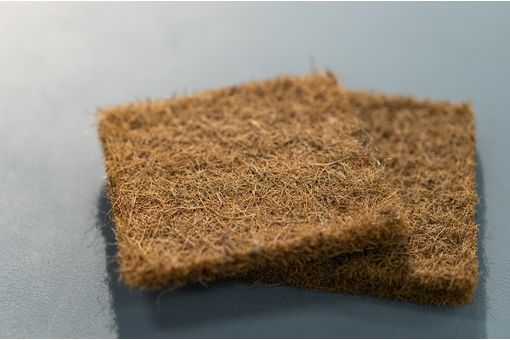Interviews
First capital goods policy targets 21 mn jobs
19 Feb '16
3 min read
The government's first-ever policy for the country's capital goods sector unveiled this week envisages creation of 21 million additional jobs by 2025.
The policy, unveiled by Union Heavy Industries Minister Anant Geete at the Make in India Week in Mumbai, envisions increasing the share of capital goods in total manufacturing activity from 12 per cent at present to 20 percent by 2025.
The objectives of the National Capital Goods Policy are to create an ecosystem for a globally competitive capital goods sector to achieve total production in excess of Rs 7.5 lakh crore by 2025 from the current Rs 2.3 lakh crore.
It also aims to increase direct domestic employment from the current 1.4 million to at least 5 million and indirect employment from the current 7 million to 25 million by 2025, thus providing additional employment to over 21 million people.
"The capital goods sector is currently going through many challenges and issues and to address those challenges, the government has launched the comprehensive policy document, the National Capital Goods Policy, today," Geete said at a seminar during the Make in India Week.
The National Policy on Capital Goods seeks to unlock the potential of this promising sector and establish India as a global manufacturing powerhouse. It envisages increasing the share of domestic production in India's capital goods demand from 60 per cent to 80 per cent by 2025 and in the process improve domestic capacity utilization to 80-90 percent.
To create an ecosystem for globally competitive capital goods sector, the policy recommends devising a long term, stable and rationalized tax and duty structure.
It advocates adoption of a uniform Goods and Services Tax (GST) regime ensuring effective GST rate across all capital goods sub-sectors competitive with import duty after set-off with a view to ensure level playing field.
The policy calls for ensuring parity of import duty structure with domestic duties, for example, equalise Countervailing Duty (CVD) and Excise duty; and Special Additional Duty (SAD) with Sales tax/ VAT or GST.
It recommends correcting the existing inverted duty structure anomalies and considering a uniform customs duty on imports of all capital goods related products.
The policy also aims to facilitate improvement in technology depth across sub-sectors, increase skill availability, ensure mandatory standards and promote growth and capacity building of MSMEs.
Key policy recommendations include strengthening the existing scheme of the Department of Heavy Industry on enhancement of competitiveness of the capital goods sector by increasing budgetary allocation and increasing its scope to further boost global competitiveness.
The policy suggests allowing up to 50 per cent CENVAT credit to manufacturers using such products as raw material or intermediates for further processing or using such goods in the manufacturing of finished goods.
The policy, unveiled by Union Heavy Industries Minister Anant Geete at the Make in India Week in Mumbai, envisions increasing the share of capital goods in total manufacturing activity from 12 per cent at present to 20 percent by 2025.
The objectives of the National Capital Goods Policy are to create an ecosystem for a globally competitive capital goods sector to achieve total production in excess of Rs 7.5 lakh crore by 2025 from the current Rs 2.3 lakh crore.
It also aims to increase direct domestic employment from the current 1.4 million to at least 5 million and indirect employment from the current 7 million to 25 million by 2025, thus providing additional employment to over 21 million people.
"The capital goods sector is currently going through many challenges and issues and to address those challenges, the government has launched the comprehensive policy document, the National Capital Goods Policy, today," Geete said at a seminar during the Make in India Week.
The National Policy on Capital Goods seeks to unlock the potential of this promising sector and establish India as a global manufacturing powerhouse. It envisages increasing the share of domestic production in India's capital goods demand from 60 per cent to 80 per cent by 2025 and in the process improve domestic capacity utilization to 80-90 percent.
To create an ecosystem for globally competitive capital goods sector, the policy recommends devising a long term, stable and rationalized tax and duty structure.
It advocates adoption of a uniform Goods and Services Tax (GST) regime ensuring effective GST rate across all capital goods sub-sectors competitive with import duty after set-off with a view to ensure level playing field.
The policy calls for ensuring parity of import duty structure with domestic duties, for example, equalise Countervailing Duty (CVD) and Excise duty; and Special Additional Duty (SAD) with Sales tax/ VAT or GST.
It recommends correcting the existing inverted duty structure anomalies and considering a uniform customs duty on imports of all capital goods related products.
The policy also aims to facilitate improvement in technology depth across sub-sectors, increase skill availability, ensure mandatory standards and promote growth and capacity building of MSMEs.
Key policy recommendations include strengthening the existing scheme of the Department of Heavy Industry on enhancement of competitiveness of the capital goods sector by increasing budgetary allocation and increasing its scope to further boost global competitiveness.
The policy suggests allowing up to 50 per cent CENVAT credit to manufacturers using such products as raw material or intermediates for further processing or using such goods in the manufacturing of finished goods.
Popular News
Leave your Comments
Editor’s Pick
Christian Guinet
French Textile Equipment Manufacturers’ Association (UCMTF)
Debin Mao
Qingdao Amino Materials Technology Co. Ltd.
































-Ltd..jpg?tr=w-120,h-60,c-at_max,cm-pad_resize,bg-ffffff)





.jpg?tr=w-120,h-60,c-at_max,cm-pad_resize,bg-ffffff)
.jpg?tr=w-120,h-60,c-at_max,cm-pad_resize,bg-ffffff)






